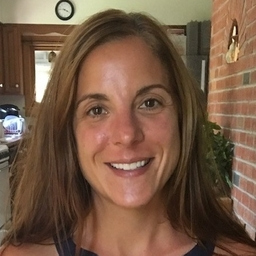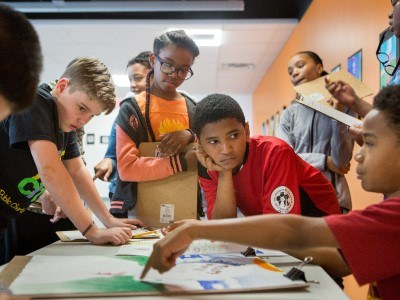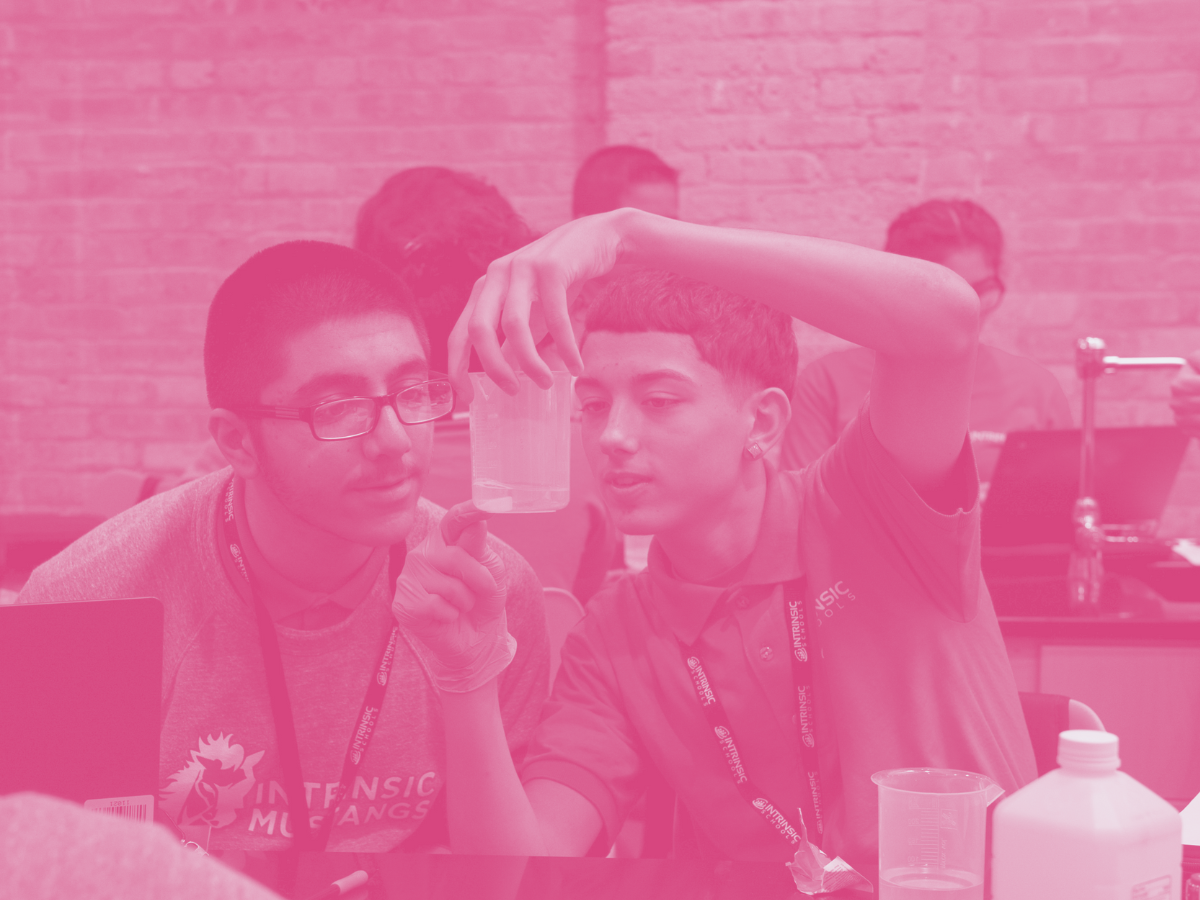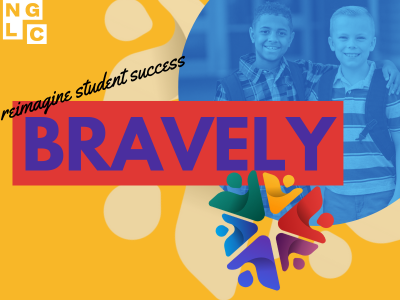Professional Learning
It’s a New Year for Next Gen Personalized Learning
Topics
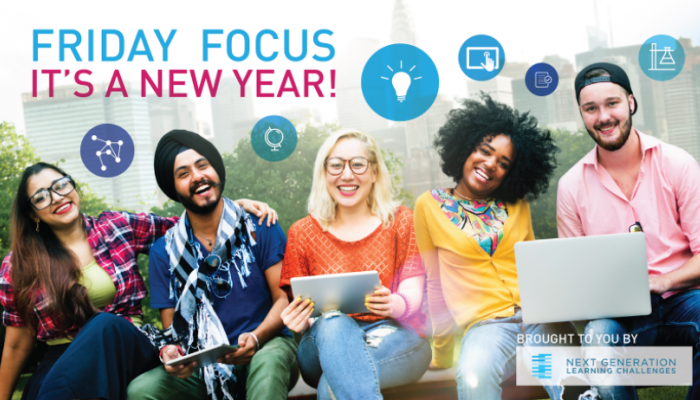
Educators are the lead learners in schools. If they are to enable powerful, authentic, deep learning among their students, they need to live that kind of learning and professional culture themselves. When everyone is part of that experiential through-line, that’s when next generation learning thrives.
Practitioner's Guide to Next Gen Learning
By sharing a moment or lesson that we’re taking with us into 2017, NGLC hopes your new year is filled with magic, innovation, and relentless learning—for your students and yourselves.
Happy New Year! There is something abidingly magical about the start of a new year. It’s the same way we feel in September when school begins—we’re given a fresh, clean slate and an opportunity to build on what came before, set intentions, rest, and meditate on small and large goals for the months ahead. As we shared in our Friday Focus post before the holidays, as a staff, we decided to kick off this year by reflecting on the year and sharing a moment or lesson that we’re taking with us into 2017.
We hope our experiences and stories are fodder for your own reflections as you begin the year anew. May it be a year of magic, innovation, and relentless learning—for your students and yourselves.
"I'm consistently reminded that we choose happiness, especially at work. We create it."
–Sarah Luchs, Program Officer
“I’m consistently reminded that we choose happiness, especially at work. We create it. And, it’s a contagion I want to share and to spread. I’ve established a set of rituals I do every morning for this reason, which can include small but deliberate moments like enjoying my coffee or hot beverage, eating a protein-based breakfast, practicing 20 minutes of meditation or gratitude and journaling, reading a few articles or quotes in my own interest areas, and identifying the important thing I need or want to do early in the day, among others. I do some selection of these each morning before I open e-mail. This puts me in the grounded mindset from which to do my work with more ease and flow.
“Caring for myself in this way is powerfully disruptive to my default, unconscious, conditioned mindset, one that can too easily take over when I get stressed or feel overwhelmed by my to-do list. Happiness and mindful practices serve to keep me present and intentional. I believe that when we do these things on an individual level, we’re better positioned to re-create them at an organizational level.
“I also think it’s the ‘secret sauce’ I see in some of our most loved schools. They’ve created a balanced head-and-heart culture. They make time for relationships, nurture collective purpose and belonging, and celebrate strengths. They’re empowered by small intentional daily choices. Many of our school leadership teams are operating as entrepreneurs, creating start-ups,and inspiring and engaging others, and to do that well requires a lot of self-care.”
–Sarah Luchs, Program Officer
"As a team, we've always recognized that our greatest asset at NGLC was and continues to be the network of innovative educators we've assembled."
–Kristen Vogt, Knowledge Management Officer
“What really crystallized for me this year was a deep understanding of how NGLC enables educators, and depends on educators, to lead the work of school transformation in their communities.
“As a team, we’ve always recognized that our greatest asset at NGLC was and continues to be the network of innovative educators we’ve assembled. And our greatest contribution has been bringing them together so they can learn from each other and advance the collective view of what good next gen learning design is and how to best implement it.
“This year, I learned that embracing personalization, agency, and equity requires next gen learning design to be driven locally and led by educators. This is the lens I remind myself to use in my own work.”
–Kristen Vogt, Knowledge Management Officer
• • •
“What is assessment, really? Having worked in and with schools for more than 15 years, I thought I basically understood: Assessment is how we measure what students know and can do, right? But a year of learning with the Assessment for Learning Project teams has caused me to question my assumptions.
“Here’s my new working definition: Assessment is a process for becoming expert in student learning. It can and should be a form of rigorous action research, a practice of thousands of small experiments over a career that build a teacher’s expertise in the nuances of how diverse minds come to understand complex ideas. This is a unique and powerful expertise, and assessment can be a systematic methodology to help educators develop it. I am curious and excited to learn which of my assumptions will be redefined by the NGLC network in the coming year!”
–Tony Siddall, Program Officer
"I saw three different approaches to learning in three different schools, but one thing remained consistent. Culture."
–Alex Roth, Social Media Marketing Specialist
“This year I visited NGLC schools in Philadelphia and saw firsthand the impact our work is having. I watched students from some of the roughest neighborhoods in the city act more professional than most adults I know. I saw three different approaches to learning in three different schools, but one thing remained consistent. Culture. The culture in these schools was created by the students, staff, and administration. Their mutual level of respect for each other and mission to learn ensured their success.”
–Alex Roth, Social Media Marketing Specialist
• • •
“I learned so much this year, and it’s hard to pick just one story to share, but here’s the one that really sticks with me and filled me with hope for our future: On a learning excursion to Valor Collegiate in Nashville, Tennessee, I watched middle school boys engage in circle. During this hour block of time on Friday mornings scholars participate in deep and thoughtful social-emotional phase work connected to Valor’s Compass model in gender-based prides.
“I watched one young man look into the eyes of every other young man in his circle. One by one, he offered each of them a unique appreciation (examples from Valor here). It was obvious to me he had spent time thinking about what to say. His statements reflected his deep knowledge of each person. I was brought to tears because I think this knowing and connection—young men (and women) learning to express their emotions, learning to value and celebrate differences publicly, and learning how it feels to know and be known—has the power to change the world. In education we often say that relationships matter. At Valor I saw adults and scholars engaging in relationship building tied to social-emotional learning, and it rocked my world.”
–Stef Blouin, Director of K–12 Operations
• • •
“Kids and adults alike need relevancy in order to spark their curiosity, spur their learning, and strike their passions. However, seeking connections to the real world is challenging—teachers must continuously adapt to the current environment and serve as guides and facilitators of change, and students must understand their unique role in their environment and navigate this ever changing landscape. Throughout the year, I have seen the emphasis our network of schools, next-gen leaders, and classroom teachers have placed on relevancy across their organizations and within their classrooms. Their commitment to lifelong learning, courage to take risks and fail, and willingness to reflect and iterate is at the core of every element of their work. Seeing this so vividly during our Learning Excursions inspires and energizes me.”
–Silke Koester, Program Manager
"Personalized learning is essential but radically insufficient."
–Andy Calkins, Director of Next Generation Learning Challenges
“Personalized learning is essential but radically insufficient. All learning is by nature personal, so the phrase itself feels internally redundant and obvious—except in the context of the era we are gradually releasing ourselves from, which gripped far too many schools (and children) in mind-numbing test-preparation that is by nature impersonal. It should go without saying that every student’s learning pathway should be personalized (while still guided by rigorous 21st-century expectations). But like the standards movement, personalized learning as a reform strategy is at risk of emerging in practice as a pale or perverted shadow of an idea that was sound in its origins.
“Young people’s experience of public school cannot and should not come to be viewed as an exercise in mastery-based, semi-personalized academic skill development alone. The value of schools in helping children understand, develop capacities for, and successfully navigate being a member of a community is equally as important—to them as individuals and for the future of our democracy. The degree that schools’ foster a healthy, highly participatory community that builds students’ sense of collective and individual responsibility is as solid an indicator of their students’ future trajectories as their scores on standardized tests.”
–Andy Calkins, Director of Next Generation Learning Challenges
Explore the archive of the Friday Focus: Practitioner's Guide to Next Gen Learning.

